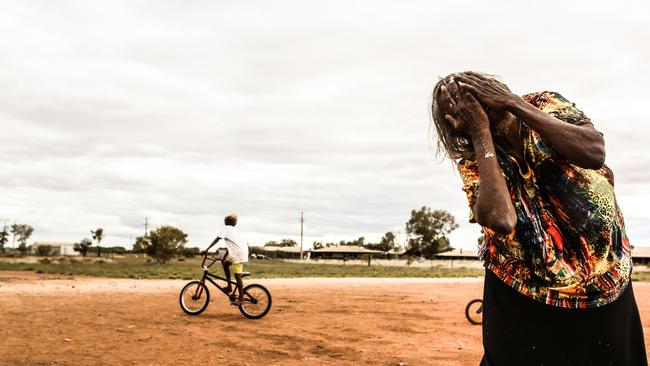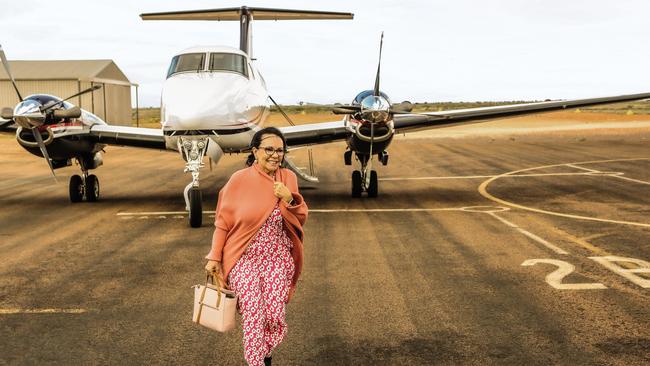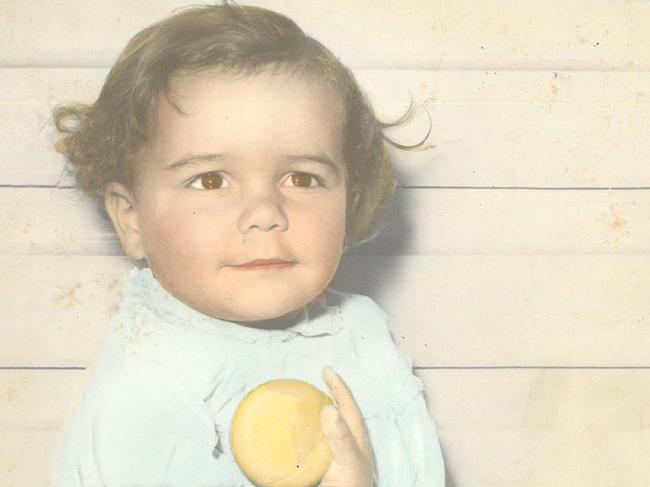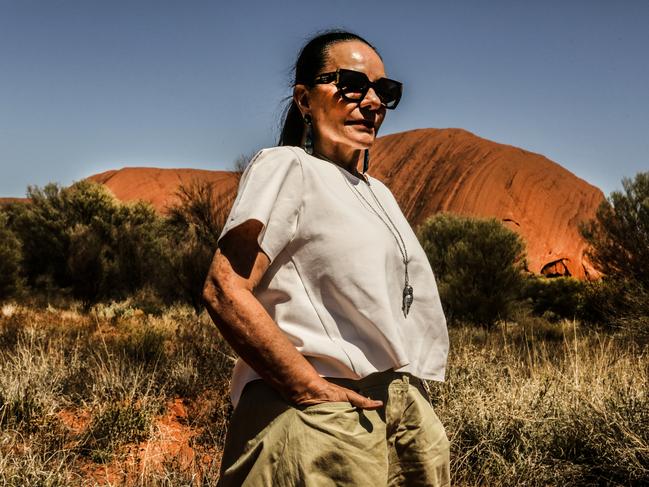5 things to know: Linda Burney hears all of our Voices
The Indigenous Affairs Minister is determined for the Voice referendum to pass. But before she can determine how it will operate, she needs to hear from those who matter.

Greg Bearup traveled to a remote town in South Australia with the Indigenous Affairs Minister as she spread the Voice.
Linda Burney has a huge job on her hands.
The Indigenous Affairs Minister has been hand-picked by Prime Minister Anthony Albanese to sell a referendum for an Indigenous Voice to Parliament.
No easy feat, considering only eight of the 44 referendums to change the Constitution have ever gone through. But if she succeeds, and the vote passes, an Indigenous Voice would be enshrined into the Constitution and Aboriginal people would see a group of their peers chosen to have a say on policies and laws that affect them.
READ MORE: What is The Voice to Parliament?
But first, Burney must learn what Indigenous Australians want to see of the Voice. How will it be constructed? Who will be a part of it? What are its functions?
Burney traveled to the remote Anangu Pitjantjatjara Yankunytjatjara (APY) Lands of South Australia as part of a long consultation process to determine how the Voice would operate.
The Weekend Australian Magazine reporter Greg Bearup traveled with her, sharing morsels about her life and how it has led to this moment.

"Her own story has instilled in her resilience and a perspective that few others possess. She will draw on this as she seeks to write a new chapter for Indigenous Australians. She’s tramping the continent, promoting the concept – its principles, if not a fully fleshed-out form of words – and listening," Bearup wrote.
Burney is not here by accident
Burney has led an incredible life, "full of joy and many triumphs, grief, and immense suffering", Bearup writes.

She was the first Aboriginal person to graduate from Mitchell College (Now Charles Sturt University) in Bathurst. She became a teacher working in western Sydney. She was soon drafted to work on Indigenous education programs. She was a powerhouse behind the Walk for Reconciliation in 2000. She was appointed director-general of the NSW Department of Aboriginal Affairs. She was NSW's first Indigenous MP when elected to parliament in 2003 before becoming the first Indigenous female member of the House of Representatives in 2016. In June, she was appointed as Minister for Indigenous Australians.
Her friend Prime Minister Anthony Albanese says "Linda is someone who brings people with her on the journey. This needs to be the moment that unites the nation and Linda always seeks to bring people together, rather than to divide people" - that's why he chose her to be the chief spokesperson for the Voice.
'There is no choice'
Burney was raised by her aunt and great-uncle on her mother's side, both white. She didn't meet her Aboriginal father until her late 20s.
At 12 or 13 years old, she realised she was Indigenous.
Those in the small town of Whitton never let her to forget it. There were schoolyard taunts about her dark skin, older women on the street telling her she wouldn't amount to anything because she was black, and 50 years later when she returned to the town's school, a man greeting her with: "The day you were born was the darkest day this town has ever seen".

But Burney said: "There is no choice. You are either Aboriginal or you are not, and people treat you in certain ways (because of it)."
'There are two worlds in Australia'
"There are two worlds in Australia – there’s mainstream Australia and then there’s Aboriginal Australia," Burney said.
She travelled to Umuwa, the administrative centre of the APY Lands, in the middle of Australia for meetings with locals at the APY Trade Training Centre. Outside the poles, it is one of the most remote places on Earth.
Here, the average life expectancy is 53. There is no state services office in the APY Lands so it is extremely difficult for people to get an ID. There is no mortuary service so bodies can be left in the living room of the family house for days until loved ones can travel for the sorry business. At nearby Ernabella Anangu School, the primary school the teacher has a microphone around her neck to amplify her voice because many of the kids have poor hearing as a result of severe middle-ear infections.
"In mainstream Australia, things that we expect as being normal are not out here. Having clean water is normal, but not out here. Paying $8 for two litres of milk is not normal, but it is out here. People having to put the bodies of loved ones in their living rooms, waiting for burial, is not normal in mainstream Australia," Burney says.

A discussion with young leaders in APY about the Voice
Inawantji (Ina) Scales, who is described as a fiery and articulate young woman, queries how the voice of the APY mob will be heard. "The voices of those mobs in the eastern states are always louder," Ina said.
“It’s who you choose to be your representatives, it’s their job to bring your voice," Burney replied.
Ina: "Will it be selected or elected?"
Burney: "The government will not be appointing people, it will be up to the communities to decide."
But the younger generation in the APY "don’t really have a voice … the elders, they block everything for us and that’s a big worry", Ina said. That's why she's here, Burney replied.
Provisions will be made to ensure there’s a gender balance and young people are represented, Burney says.
'A much better system than the one we have'
"As the objections of (Warren) Mundine and (Jacinta) Price reflect, she’s yet to convince even some of her own mob that the Voice will make a difference," Bearup wrote.
Frank “Riverbank” Doolan is a respected elder from Dubbo who has known Burney since the 1980s and respects her greatly, but he doesn't support the Voice. "At a community level, I don’t think it will make any difference. People will still grapple with abject poverty, persecution by police, poor rates of employment, and even poorer education."
Burney said she understood his concerns. She acknowledged it would cost a lot of money - money Doolan wants to see spent on practical solutions at a community level.
But, she argued: "Having people identify problems in their own communities, and bringing this to the attention of the Parliament through the Voice, will be a much better system than the one we have."
"It is working on the ground with these communities and being culturally aware, and part of that is knowing the history and understanding that what shaped Aboriginal Australia is not what shaped the rest of Australia."


